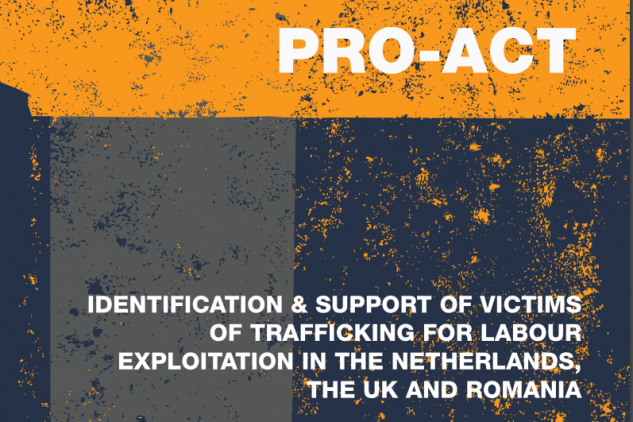
New FLEX research shows need for stronger response to trafficking for labour exploitation across Europe
FLEX research published today on the Identification and Support of Victims of Trafficking for Labour Exploitation in the Netherlands, the UK and Romania sets out a roadmap towards improved responses to human trafficking for labour exploitation in Europe.
The report focuses on seven key areas: identification; access to support; housing; psychosocial support; work; legal counselling; and long-term support. One important finding on identification relates to the key role of labour inspection in preventing labour exploitation in all countries. Whilst labour inspection was found to be critical, it was also shown to suffer when combined with immigration control, meaning victims do not come forward and importantly that trust with workers is damaged. Findings on support included the strong correlation between access to safe housing and recovery and the low take up of psychological support by male victims of trafficking. In general support was found to be very short term with limited consideration of the long-term outcome for the victim.
Based on these key findings FLEX and its project partners have made a series of recommendations for those working on trafficking. This includes a series of recommendations for Governments. These include, first and foremost, for a clear distinction to be made between labour inspection and immigration control in order to ensure trust between inspectors and workers is maintained and that critically abuses are prevented before exploitation occurs. Research findings also indicated that victims of labour exploitation in particular are suffering in relation to housing provision, and it is recommended that Governments ensure safe housing is made available to both men and women, and to victims of both labour and sexual exploitation, and that such housing suits individual victims’ needs. Significant barriers to victims’ access to legal remedies, including limited access to specialist legal advice and compensation, must also be addressed by governments providing clear avenues to legal remedies and by building networks of specialist lawyers. Finally the research revealed the little discussed problem of re-trafficking and recommended Governments gather much more data on re-trafficking to be able understand and address this risk.
The findings also pointed to the need for much greater research to be conducted in to the specific psychological needs of victims of trafficking for labour exploitation, particularly to enhance understanding of responses to trauma amongst such victims. Whilst the research showed an extremely low uptake of psychological support by male victims, it also showed that some support providers were surprisingly dismissive of the psychological needs of male victims. Therefore the report makes a strong recommendation for greater awareness of the psychological needs of male victims of trafficking in responses.
Download the full report here.
The findings laid out in this report form the basis for the development of a range of strategies for improving detection, identification and support services which are currently being piloted in the three partner countries. The pilot phase of the Pro-Act Project will conclude in April with an EU-wide workshop to review and finalise these strategies for wider dissemination.
This project has been funded with support from the European Commission. This blog reflects the views only of the author, and the European Commission cannot be held responsible for any use which may be made of the information contained therein.
